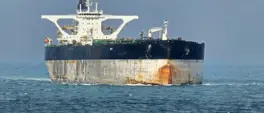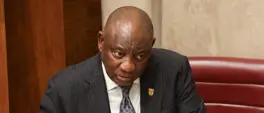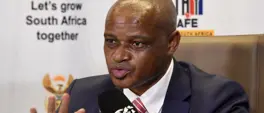YONELA DIKO: SA must lead Africa’s space launch capability
Yonela Diko
1 October 2024 | 7:05South Africa leases most of its satellite services, which has implications on the costs of our required satellite services, and on our independence and sovereignty, writes Yonela Diko.
At its national conference in 2022, the African National Congress (ANC) resolved to enhance the technological and sovereignty of the State by launching South African-owned satellites to move the country away from the high costs of leasing satellite services, and curb the risk to State security.
South Africa leases most of its satellite services, which has implications on the costs of our required satellite services, from telecommunication to broadband connectivity and GPS.
This also has implications on our independence and sovereignty.
South Africa was the first African country to design and manufacture its own satellite, SunSat-1, in 1999, built by our engineers at Stellenbosch University. It was launched in the United States. In 2013, another satellite was built by the Cape Peninsula University of Technology (CPUT) engineers. It was also, however, launched in Russia.
According to space consultancy firm, SpaceHubs Africa, the continent has to date launched 61 satellites by 17 African countries, however, all have been launched on the launch pads of foreign countries.
DEVELOPING OUR OWN SPACE LAUNCH CAPABILITY
The importance of satellite capability and our own ability to launch them at home cannot be overstated.
We need satellite independence for communication, banking, weather predictions, agriculture, and many other developments.
We need our own space launch capability to independently pursue our own technological advances and protect our industries from any future conflicts. Depending on other countries means we have no control on getting into orbit and conducting our own affairs. It is also very expensive to lease satellite services, both for the State and private sector.
Satellites perform tasks that no other machines can. They cover huge areas, provide connections above and below sea level, and can provide governments with secure communication. Satellite companies have continued to improve, on solar arrays, better sensors, and the use of photonics.
Sending our satellites to be launched elsewhere also means we lose the ability to develop a technologically advanced aerospace engineering field in South Africa, and may also miss out on leasing fees to other countries wishing to launch their satellites on our launch pad.
While we continue to require more satellites, such as the communications satellite planned by now former Minister of Communications and Digital Technologies Khumbudzo Ntshavheni, to enhance our broadband connectivity and broadcasting, scientific research and earth observation, and develop our own capabilities.
Fortunately, the University of KwaZulu-Natal (UKZN) officially launched an Aerospace Systems Research Institute (ASRI) this year, with a clear aim of building a satellite launch pad at the Denel Overberg Test Range in the Western Cape.
The project’s expected ready-for-launch date is around 2028, according to ASRI Director Professor Michael Brooks.
KEEP UP OR GET LEFT BEHIND
While this is commendable, other African countries have similar ambitions.
Djibouti is said to be planning a collaboration with China to build a spaceport in the next five years, according to German broadcaster Deutsche Welle.
It is widely accepted that the satellite industry is very patient. Unlike other sectors, like automotive, which require less time and less money to build a working machine, spacecraft is very high-tech and requires a lot of funding. However, satellites last longer and can stay in the Earth’s atmosphere for a very long time
Beyond the need for independence in satellite launch capabilities and critical services, South Africa needs to adopt a culture of global competitiveness with leading nations in the world. We must expect this of ourselves, the continent already does.
The ability to compete and outcompete other nations in the technological race which is important for our own sustained development and survival requires that we move with speed.
We must invest quickly in concepts and move faster in developing prototypes and rework them as we develop.
Technology innovation is moving faster and if we don’t keep up, by the time we adopt these technologies, they will have become obsolete.
Yonela Diko is the former spokesperson for the Minister of Human Settlements, Water and Sanitation.
Get the whole picture 💡
Take a look at the topic timeline for all related articles.

















